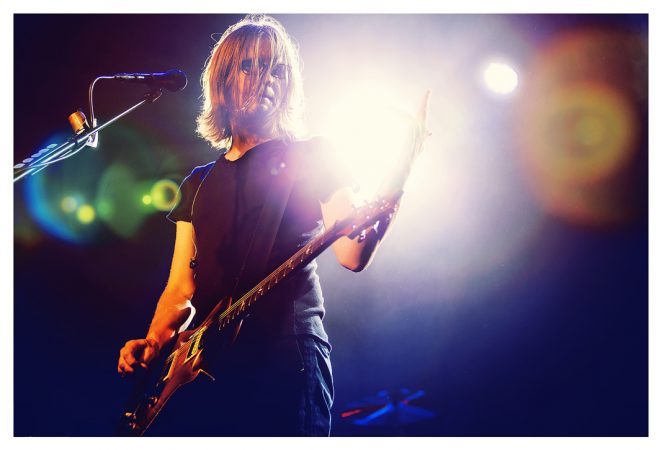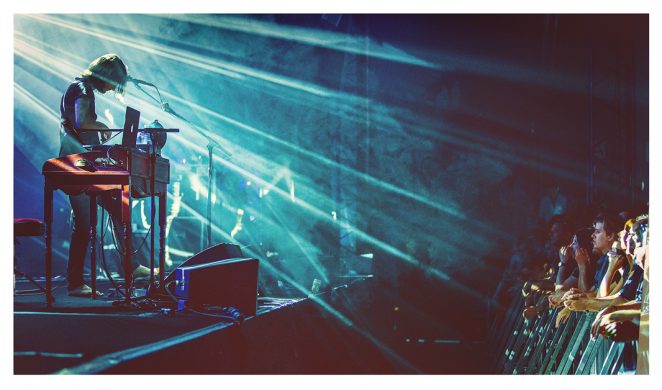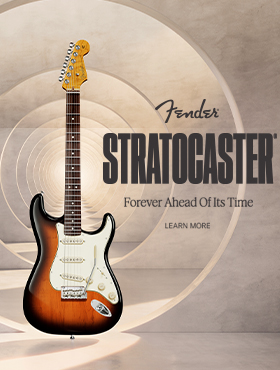
Steven Wilson – Interview by Joshua Batten
In November 2018, musical mastermind Steven Wilson will be returning to Australia and New Zealand to highlight his latest album To The Bone with a brand new show, combining strong musicianship with an elaborate multimedia spectacle, all in an intimate setting. This will be his fifth visit to antipodean shores, having been here twice with his former band Porcupine Tree and two more times as a solo artist with his albums The Raven That Refused To Sing and Hand. Cannot. Erase. Wilson is the dictionary definition of an evolutionary musician, having incorporated elements of Psychedelic Rock, Prog Rock and Metal into his music over the years, and To The Bone is no exception. This time Wilson has leaned towards an artistic pop style, reminiscent of the musical innovators Wilson grew up with in the 1980’s.
Ahead of the tour, aspiring musician and Steven Wilson super-fan Joshua Batten was given the chance to speak to the man himself about the creative process that went into creating the album and the show.
Hi Steven, thank you so much for taking the time to speak to me.
No worries, mate.
Do you have any memories of your previous trips to Australia and what are you looking forward to about this trip?
Memories of Australia have always been very positive. Wonderful audiences, very eclectic audiences, always nice to see. One of the things I love about looking out and seeing an audience is that you can’t really say what kind of audience they are. You’ve got metal kids, pop kids, girls, boys, old hippies, people in Radiohead T-Shirts, Slayer T-Shirts, Massive Attack T-Shirts, and I love that about my audience. I find that particularly when I come to Australia and New Zealand there’s a very eclectic demographic in the audience. That for me is the greatest vindication of all – it means the music has kind of transcended the idea of genre, and that’s very important to me.
What are the concepts that will make the show different this time round?
The show is bigger and better and more immersive than ever. The To The Bone material has definitely changed the overall vibe of the show – it’s a lot more joyful now. Obviously, there’s still a lot of darkness and melancholy to it, but it feels like a much more joyful, vibey experience now. There are some fantastic new films and visuals that are part of the show, we still have the quadrophonic sound, multiple screens and great musicianship. I try and make it a real treat and a real audio-visual spectacular experience.
I’m always trying to raise the bar with every tour to make it just that little bit more spectacular and send people away with that kind of ‘wow’ factor. So even if people have come to see it before in Australia, I would encourage them to come back and see how things have really moved up.
Your previous tours of Australia have been in clubs including the Metro in Sydney and the Billboard in Melbourne, and this will be your first time playing theatres including the Palais and the Enmore. Are you disappointed to be losing a sense of intimacy, or excited to be playing in a bigger room to a larger audience?
It’s one of those “be careful what you wish for” things. The more successful you become, the bigger the rooms you play, and you lose a little bit more of that connection that comes from an intimate venue. I’ve got used to it and I think in a way you have to make your personality (and the show) a little bit bigger to try and still create that feeling of intimacy.
The one thing that is problematic for me is when the audience is seated, which unfortunately will be the case when we come to Australia. I find with a seated audience it’s much harder to put it across, but they are what they are, and I’ll still get the audience standing up anyway at some point during the show.
What has the reception been like from fans who’ve seen the show already?
Amazing. I’ve never had such a great response to a tour and to a particular show. There’s something about the material on To The Bone that has almost balanced out the show. It was always a spectacular show but it was very much dwelling on the more long-form conceptual rock music, the more melancholic side, and of course that’s all still there, but now it’s balanced out with these more immediate and in some cases joyous pieces of music, which almost have a pop sensibility sometimes. I think even for the fans of the more conceptual rock, that’s given the show more of a sense of balance and more of a sense of momentum. I really feel that from the stage now, that the whole experience has been much more engaging for the audience.

I know you always try to evolve with each new release, and To The Bone is your most commercial-friendly album to date, even though there have been commercial elements to your music in the past. What were the circumstances that led to this album sounding the way it does?
Like everyone, I find myself going through certain cycles and phases in terms of stuff that I’m listening to and what excites me musically, and one of the things I was really excited about when I was writing To The Bone was going back to the music I grew up and not necessarily referencing the music itself, but referencing the idea that in the 80’s, when I was a teenager, there were a lot of very, very big mainstream commercial records that were also very, very ambitious and didn’t compromise in any respect with regards to experimentation or deep lyrics. Artists like Kate Bush, Depeche Mode, Tears For Fears, Peter Gabriel, Prince, these artists that were massive pop icons in the 80’s, but they were also in their own way creating their own musical universe. And I suddenly thought to myself, “Where is that music now in the 21st century?” I know there’s some interesting things going on with hip-hop, but when it comes to rock music, where are those kinds of albums now? So without wanting to be necessarily nostalgic about 80’s music, I wanted to take that idea that you could create an incredibly ambitious and accessible pop record in 2017/18.
Was there anything you did differently when it came to writing the songs on To The Bone?
In a way, I was a little bit more attached to concise songwriting this time round, whereas before I might have allowed some of the songs to start off in a fairly regular way before developing them down these conceptual rabbit holes. This time I was more focused; I wanted to keep the songs more concise and I wanted to rely much less on the musical vocabulary that I’d used on the previous couple of records where I used a lot of ‘vintage’ sounds (Mellotron, Hammond organ etc.). This time around I was more interested in using a more contemporary musical palette, and I think that’s something that I always do with every album. One of the first things you do to keep your music fresh is to change your musical palette, change the colours you paint with. Don’t go back to the same instruments – buy some new keyboards, buy some new guitars. And that’s exactly what I did – I went out and I bought some new keyboard instruments and I found that that kind of led me down a different path.
Which brings me to gear – you’ve recently started playing Fender Telecasters onstage alongside your Paul Reed Smiths. What made you choose the Telecaster in particular?
That’s a perfect example of what I’m talking about. The simple answer is that it was a moment of serendipity. I was home for a few days in the middle of the Hand. Cannot. Erase. tour, and I had this idea for a song, but all my regular guitars (my Paul Reed Smiths) were out in a truck somewhere across Europe. The only guitar I had was this Mexican Telecaster that I’d bought 15 years ago and virtually not touched since. It just sat there in the corner looking lonely. At the time I bought it I was thinking “Oh, you’re a guitar player. You should definitely have a Telecaster, a Strat and a Les Paul”, so I bought the Telecaster and then never played it. But that day it was the only guitar I had, so I picked it up and I literally fell in love at that moment. It was just a completely different sound and straight away I found myself writing this song which would become “People Who Eat Darkness”, which has a very aggressive sound and is very much based around the Tele.
Because of that ‘moment of need’, it became one of the signature sounds of the record and definitely changed the sound of the music. So it was very much a happy accident that it was the only guitar I had available that day, and subsequently I’ve gone out and bought another beautiful 1963 Telecaster, which is the one I use in the show.
And you still use the Paul Reed Smiths on the older material?
Absolutely. I find that the material very much dictates which guitar you play, so I have even more guitars with me on the road these days.
Your current setlist contains songs from your solo career, as well as Porcupine Tree and Blackfield. What determines which songs make it into the setlist, and what made you decide to bring back older songs after a lengthy absence?
With this tour in particular, I was looking for other material that would fit well with To The Bone, and certainly between 2000 and 2005 I feel I wrote a lot of music which has quite a lot in common with the music on To The Bone. It was more song-orientated, and it was more accessible, so I’m able to go back and pick out songs like “Lazarus”, “The Sound of Muzak” and “Blackfield”, which in many ways I feel are precursory to the style I’ve come back to on To The Bone. So I’m finding that a lot of those songs slot in a lot better to the show now then perhaps they would have two years ago on the Hand. Cannot. Erase. show.
To answer the second part of your question, now that I’m established as a solo artist I feel more comfortable about going back and playing songs from Porcupine Tree, because people are no longer thinking of my solo project as some temporary thing I’m doing before I go back to Porcupine Tree. There was a period when that was true, probably in the first three or four years I was always battling that notion that the solo project was just a temporary diversion. So I was kind of reluctant to play that material but I think things are different now, and I feel a lot more relaxed about playing that music now.
Finally, with such polar opposites in the music industry today, what motivates you to keep going?
Well, obviously there’s nothing else I can do with my life, really. I’ve come this far and I’m 50 years old – this is what I do. It should be said, though, that I’m doing OK – I’m not a massive mainstream artist, but even in this time when people don’t buy records, To The Bone has sold about a quarter of a million copies here, and that gives me a good living. I’m very good at spending all the money I make and putting it back into the show and ending up with nothing, but I don’t mind, because I’m comfortable and for me it’s all about creating the magic through the music.
Thanks again for your time and I can’t wait to see you in Melbourne this November.
Thank you very much; good luck with your own music, Josh.
Steven Wilson Tour Dates
Brisbane – Thursday 8th November – Eatons
Sydney – Friday 9th November – Enmore Theatre
Saturday 10th November – Melbourne, Palais Theatre
Monday 12th November – Auckland, Bruce Mason Centre
Tickets available from www.davidroywilliams.com

